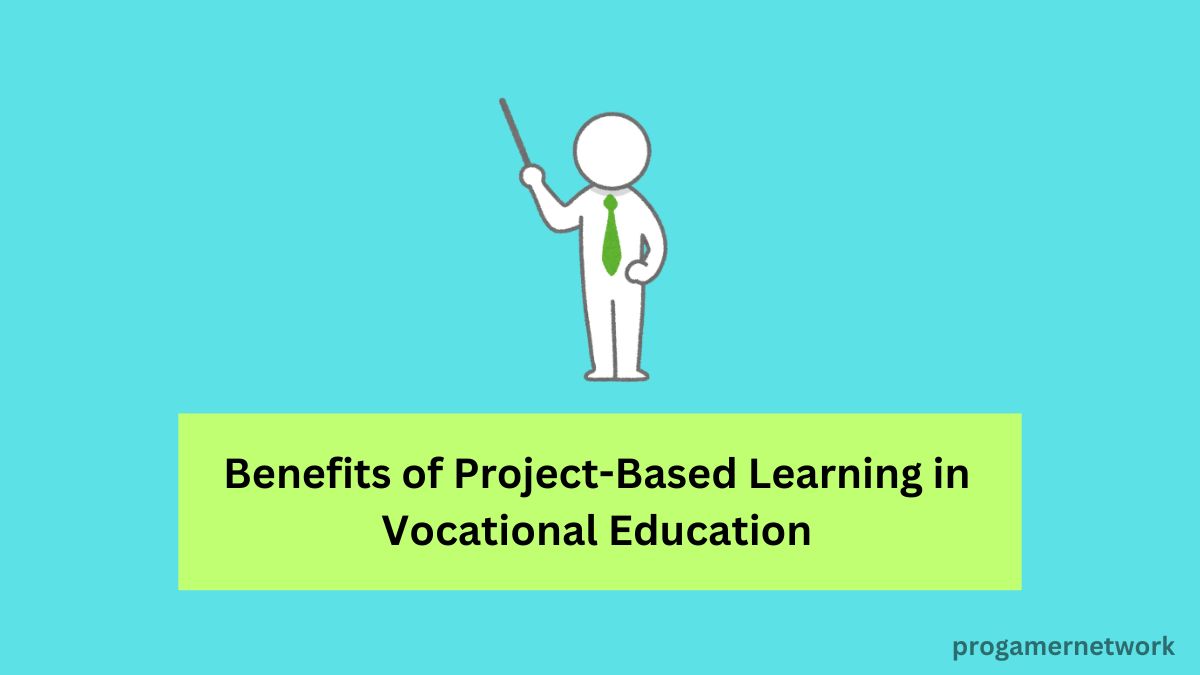Vocational education plays a vital role in equipping students with practical skills and knowledge that are directly applicable to specific careers. Unlike traditional academic routes, vocational education focuses on hands-on training and real-world applications, preparing students for immediate employment in their chosen fields.
What is Project-Based Learning?
Project-Based Learning (PBL) is an instructional approach where students engage in complex, real-world projects over an extended period. Instead of passively absorbing information, students actively investigate, collaborate, and create, culminating in a final product or presentation. This method aligns perfectly with the goals of vocational education, where practical skills are paramount.
Key Benefits of Project-Based Learning
Enhances Practical Skills
One of the primary benefits of PBL in vocational education is the enhancement of practical skills. Students learn by doing, which helps them master the tools and techniques necessary for their future careers. For example, in a culinary program, students can work on meal planning, preparation, and presentation through actual cooking projects, gaining hands-on experience that theory alone cannot provide.
Fosters Collaboration and Teamwork
Vocational fields often require teamwork and collaboration. PBL encourages students to work in groups, mimicking workplace dynamics. Through collaborative projects, students learn to communicate effectively, resolve conflicts, and leverage each other’s strengths. This team-oriented approach not only builds interpersonal skills but also prepares students for the collaborative nature of most jobs.
Encourages Critical Thinking and Problem-Solving
In PBL, students face real-world problems that require critical thinking and innovative solutions. For instance, an automotive technology class might work on diagnosing and fixing a malfunctioning vehicle. This not only hones their technical skills but also cultivates their ability to analyze situations, evaluate options, and implement effective solutions—skills that are invaluable in any profession.
Increases Student Engagement
Engagement is a significant challenge in education, but PBL addresses this issue effectively. When students are involved in projects that interest them and have real-world implications, they are more likely to stay motivated and invested in their learning. This heightened engagement can lead to better retention of knowledge and a more profound commitment to their field.
Prepares Students for Real-World Challenges
PBL is designed to simulate real-world scenarios, making it an excellent preparatory tool for students entering the workforce. By tackling projects that reflect industry standards and practices, students gain insights into what to expect in their careers. For example, a graphic design program may require students to develop branding for an actual business, providing them with a portfolio piece that demonstrates their skills to future employers.
Implementation Strategies for Project-Based Learning
Designing Effective Projects
To reap the benefits of PBL, educators must design projects that are relevant and aligned with industry needs. Collaborating with industry professionals can help educators create meaningful projects that reflect current trends and challenges in the field.
Assessment and Feedback Mechanisms
Assessing student performance in PBL can be more complex than traditional testing. Educators should develop rubrics that evaluate not only the final product but also the process, collaboration, and individual contributions. Providing regular feedback throughout the project helps students understand their progress and areas for improvement.
Case Studies and Success Stories
Examples from Different Vocational Fields
Numerous vocational programs have successfully implemented PBL. For instance, a construction program may involve students in designing and building a community garden, allowing them to apply their skills while serving a local need. Similarly, in a healthcare training program, students might work on projects that involve creating health awareness campaigns for their community.
Testimonials from Educators and Students
Many educators report that PBL increases student enthusiasm and retention rates. Students often express a deeper understanding of their subject matter and a greater connection to their future careers. These positive outcomes highlight the effectiveness of project-based learning in vocational education.
Challenges and Considerations
Resource Allocation
While PBL has many benefits, it can require significant resources, including materials, space, and time. Educational institutions need to assess their capacity to implement PBL effectively and allocate resources accordingly.
Training for Educators
For PBL to be successful, educators must be trained in this teaching method. Professional development programs can equip teachers with the necessary skills and strategies to design and facilitate effective projects, ensuring a high-quality learning experience for students.
Conclusion
The Future of Vocational Education through Project-Based Learning
Incorporating project-based learning into vocational education can transform the learning experience, making it more engaging, relevant, and effective. As industries continue to evolve, vocational education must adapt to prepare students for the challenges ahead. PBL offers a promising approach to achieving this goal, fostering a generation of skilled, capable, and confident professionals ready to enter the workforce.
FAQs
How does project-based learning differ from traditional learning?
Unlike traditional learning, which often focuses on rote memorization and lectures, PBL emphasizes hands-on experience, collaboration, and critical thinking through real-world projects.
What types of projects are most effective in vocational education?
Projects that align with industry standards and involve practical applications of skills—such as designing, building, or creating products—tend to be the most effective.
Can project-based learning be adapted for online education?
Yes, PBL can be adapted for online settings through virtual collaboration tools and digital project management platforms, allowing students to work on projects remotely.
What skills do students gain from project-based learning?
Students develop a range of skills, including teamwork, critical thinking, problem-solving, communication, and practical technical skills specific to their vocational field.
How can schools get started with project-based learning?
Schools can begin by training educators, designing relevant projects in collaboration with industry partners, and gradually integrating PBL into their curriculums while assessing its impact.

